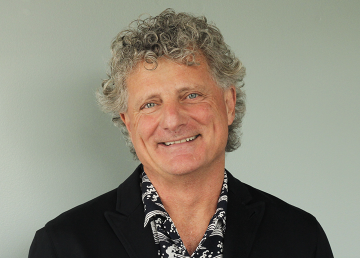
Paul Stacey, Executive Director at The Open Education Consortium. Photo courtesy of Paul Stacey.
Paul Stacey is a major proponent of open education initiatives. Currently the Executive Director of the Open Education Consortium, Stacey cofounded British Columbia’s open education initiative BCcampus and has worked at Creative Commons. Stacey has dedicated his life to working toward freely accessible education, and proving that open education isn’t just good for students, it’s also good for communities and bottom lines.
In January, we sat down to talk about openness, education, and what Stacey’s dream university looks like.
What do you see as the biggest roadblock to openness initiatives in the world right now?
There are many issues. If I was to distill it down to a few, I would say that our society has taught us that we are rewarded for the unique ideas we create. And those ideas, and the products of those ideas, are typically copyrighted and held as property by the original creator. That notion of uniqueness, also of property and reward for creating property – either through reputation or money – are the primary ways by which education and most of society operates.
What could the government be doing better to encourage people to use, invest in, seek out, and support openness initiatives?
If you look at other countries around the world, one of the ways public funds have been used to make things more open is in the gallery, library, archives, and museum sector. [For example], by using Creative Commons to take collections that are housed in those major public institutions and openly licensing them so the public has free access.
Canada hasn’t really followed that path at all, and I think that it could. We have some major museums and libraries that could, and very much should, be playing a role in ensuring the public has open access to use these materials. Europe is very active in [developing] the commons as a means of ensuring more equity among people. Equity and access are really issues in other countries that are being solved through things like City-as-Commons. So, what parts of the city can be made into a commons? That’s really blue-sky in the Canadian context. It’s an idea that nobody is even talking or thinking about. It’s a bit radical for Canada, but it’s not so radical in other parts of the world.
What could universities be doing better?
I think there’s a possibility for institutions to collaborate way more than they do. What do they have that they want to share with others? And what are they looking to receive from others? Then, forming partnerships around the haves and the needs where there is mutual reciprocity back and forth. I think this is tough to do within a province because there is so much competition at a province level. It actually is a little bit easier to do it globally, where you are partnering with an institution that doesn’t necessarily compete with you.
Another thing I’ve been thinking about is how universities can differentiate themselves. In the old days, open universities were ones that were open to non-traditional students. Why don’t we redefine the open university? It looks something like this: one that develops and uses open education resources, publishes all of its research in open access ways, produces MOOCs [Massive Open Online Courses], uses open policy and open policy governs things like promotion and tenure, uses open-source software and open-source hardware, and open data. This gets to the questions around student data: who owns all of that stuff about students? I think a new, contemporary, open university could adopt all of those practices and distinguish themselves from many others in the field by showcasing its openness in these contemporary ways.
This sounds like the ideal university. Purely academic, and actually getting research out of the university and into the public where it’s used.
Students, people like you, are the way this change is going to happen. There are people like me saying: “This is a great idea, this should be done.” But when students start to say that this should happen, then it’s taken seriously. When students start to say that we should be going open, it’s hard to ignore them.
___
Written By: Samantha Summers
Edited By: Monique Rodrigues
Feature image: Image Online Education_By_Kreatikar Used Under Pixabay License

